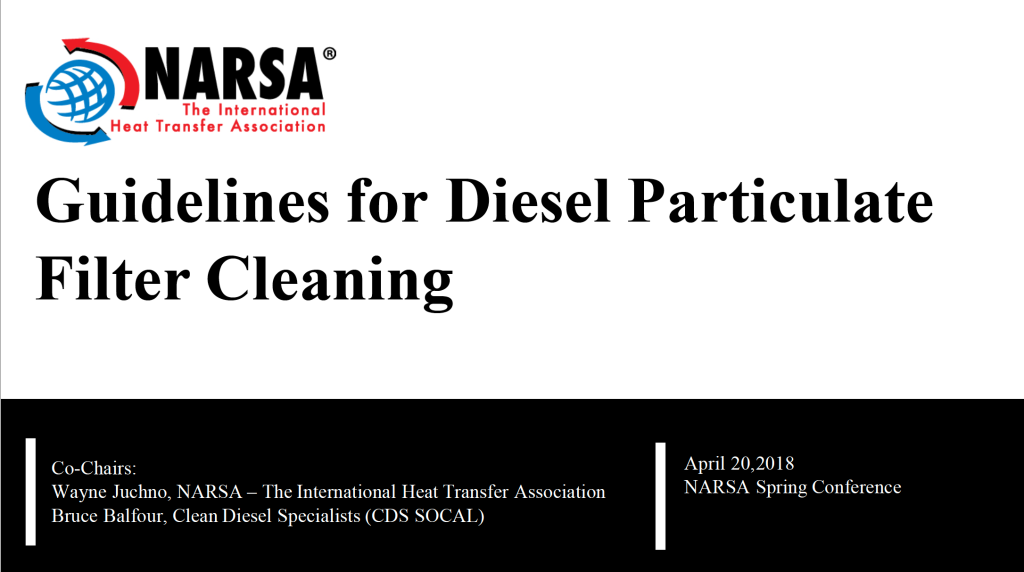
Download “Guidelines for Diesel Particulate Filter Cleaning” Here
Co-chairs of the study group at TMC are Bruce Balfour of Clean Diesel Specialists (CDS) and Wayne Juchno, NARSA Executive Director | Technology & Maintenance Council of the American Trucking Association
Since 2007, the U.S. EPA has promulgated a stepped plan to further regulate emissions from diesel engines for almost all uses including over-the-road trucking, construction, agriculture, transit, rail, marine, stationary power generation, mining, school buses, and emergency vehicles. As a result, industry has responded with the development of a new generation of advanced clean diesel technology that relies on ultra-low sulfur fuel, high-efficiency engines, and advanced emissions controls. Part of the advanced emissions controls include the use of filters to reduce exhaust gas particulates. Many radiator business owners have joined the filter cleaning business.
However, there are different ways to clean filters. Most are good; some not so good. The Technology and Maintenance Council (TMC) of the American Trucking Associations has recognized a need to establish recommended practices for filter cleaning. Co-chairs of the study group at TMC are Bruce Balfour of Clean Diesel Specialists (CDS) and Wayne Juchno, NARSA Executive Director. Their report presents a look at the early drafts of the Recommended Practice for Diesel Particulate Filters.
Diesel particulate filters (DPF) trap and remove particulate matter from the engine’s exhaust. According to the TMC (Technology and Maintenance Council of the American Trucking Associations): “Diesel engine manufacturers have selected DPF technology as their prime path for reducing particulate emissions. The DPF accomplishes this by mechanically filtering the exhaust gases while the after treatment system oxidizes the solid and liquid phases of the exhaust.”
Clean Diesel Specialists Inc. estimates that there are approximately 2,400 cleaning machines in the USA and that 1 to 3 technicians would be employed per location. DPF cleaning services are provided by captive fleet maintenance facilities, dealerships, stand-alone operations, Heavy Duty (HD) radiator repair facilities, independent truck repair centers, and truck stops.
This presentation was originally part of NARSA’s 2018 Spring Conference in Gadsden, Alabama.
